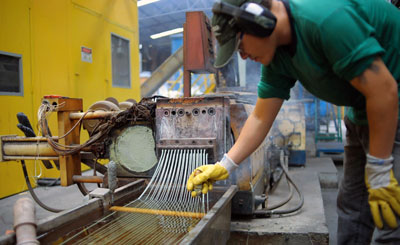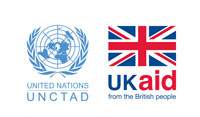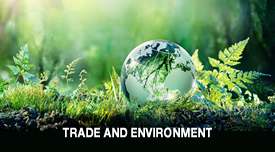Many aspects of manufacturing pollution are connected to limited application of circularity principles in industry. In the context of the important public and private-sector participation at the World Circular Economy Forum 2019 in Helsinki, UNCTAD and DFID are organizing a brief presentation on the research funding opportunities under the SMEP programme, followed by interactive discussion.
SMEP is an important instrument for the global community to concretely tackle pollution sources in manufacturing sectors prevalent in developing countries, which could improve with applied research. The side-session will stimulate debate to learn and collaborate on the design of research lines to tackle pollution rom low and mid-complexity industries in Sub-Saharan Africa and South Asia.
The session will connect policy makers, researchers businesses and other parties with interest in both technology (“hard”) as well as policy (“soft”) solutions to manufacturing pollution. In specific, the session aims to:
- Raise awareness about SMEP and its GBP 20 million endowment as an instrument to use circularity approaches to tackle manufacturing pollution in key income-generating, job-creating economic sectors in developing countries.
- Showcase preliminary findings of the SMEP baseline assessment.
- Learn from audience experience in circularity-based solutions, as well as other research initiatives, as an input to the SMEP programme.
- Promote cooperation with private companies working in the target regions, in order to enhance the impact of upcoming research calls in early 2020.
Background
UK-DFID and UNCTAD have launched in 2018 the Sustainable Manufacturing and Environmental Pollution (SMEP) programme. The programme is endowed with a GBP 20 million contribution from DFID to support research aimed at tackling the issue of manufacturing-related pollution in manufacturing sectors present in Sub-Saharan Africa and South Asia. Especially, the programme aims to assist countries to improve the environmental and health impacts associated with manufacturing pollution, as well as improve economic efficiency of the targeted industries. SMEP will run until 2023.
The programme will also focus on generating evidence and practical solutions to address the problem of plastic pollution in the ocean, an issue which has gained increased attention due to its adverse effects for the economy, ecosystems and human health. A baseline assessment of critical areas is being undertaken by UNCTAD in 2019, and full calls for research will be published in early 2020.
Photo credits: Henrique Pacini / Dionísio recicláveis.







